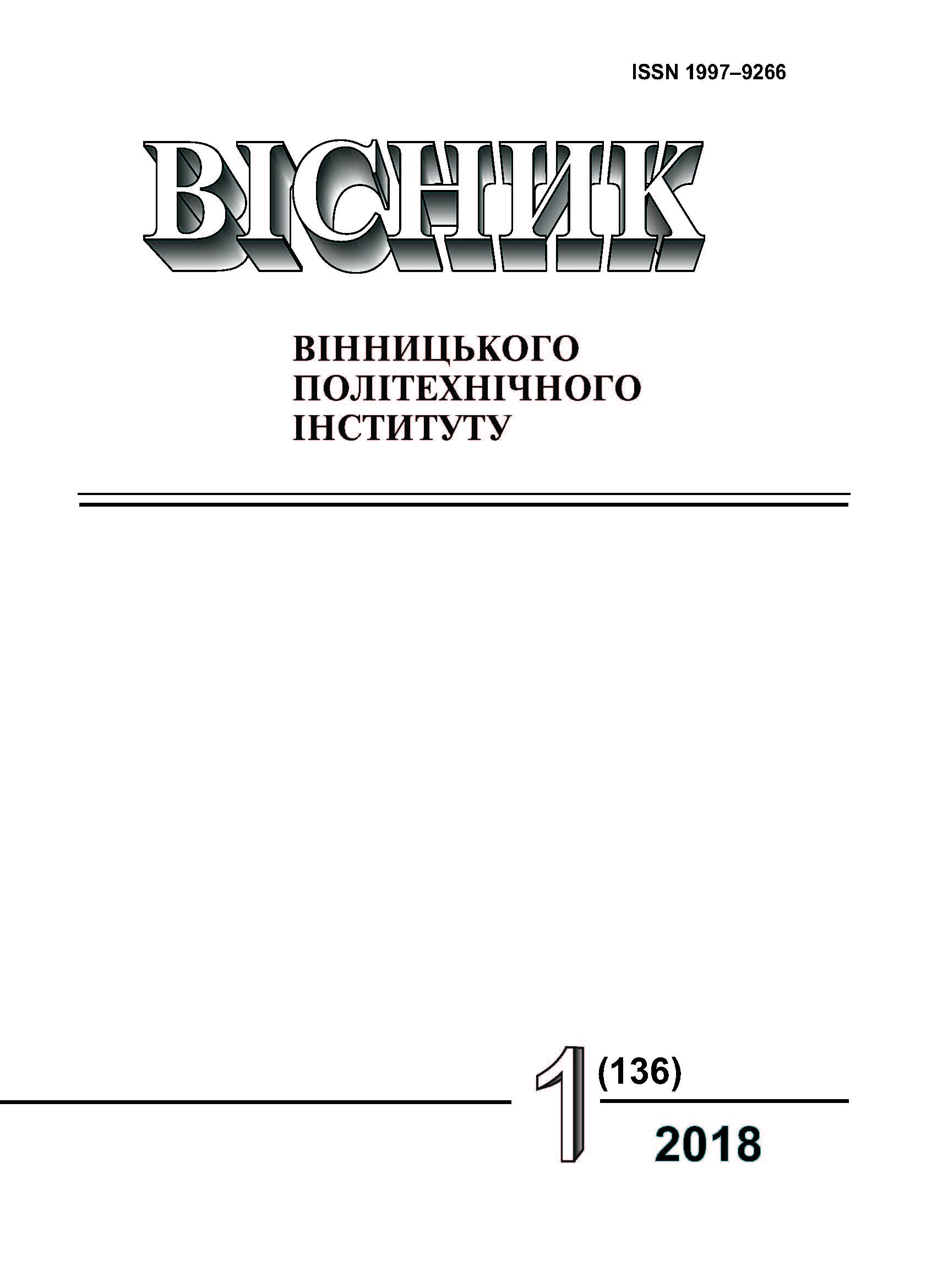Internal Symmetrization of One-phase Electric Power Supplies and Determining Their Group Loading Schedule
Keywords:
internal symmetry, alignment of load graphs, voltage asymmetryAbstract
There has been studied the influence of tasks of internal symmetry of single-phase electric devices on formation of their group load schedule and the asymmetry of the electric mode. The recommendations for the consideration of these interconnections in practice have been developed.
It is established that the criteria for solving both problems are contradictory. The decision to shift the individual load schedules to align the group graphics is accompanied by an increase in asymmetry of the regime and vice versa.
In case of prioritization of the task of aligning the group load of loads, the decision to shift the individual load graphs of single-phase electronics should be taken, guided by the criterion that evaluates the unevenness of the group graph. The obtained results can be improved by optimal distribution of single-phase electric devices between the voltages of the electrical network, without affecting the effect obtained from the alignment of the group load schedule.
If the priority is the task of the simulation of the electric mode, then, in order to equalize the loads in phases, it is necessary to use as shifts in the time of technological cycles of single-phase electric collectors, so their distribution between phases of the network. In such a case, there might be a case where the standards of the standard for the quality of electric power according to the asymmetry of the electric mode are not provided in the network. By criterion for decision making, one of the parameters should be selected, which is a measure of the asymmetry of the electric mode. In this case, in order to obtain the maximum effect of the decision must be taken, solving the problem as a whole.
The correctness of the conclusion regarding the contradictory nature of the criteria and the formulated recommendations was checked on control samples, in which, according to the same initial data, tasks were solved using known methods.
References
[2] В. Г. Аввакумов, Методы нескалярной оптимизации и их приложения. Київ, Україна: Вища школа, 1990.
[3] В. Г. Аввакумов, Математическая логистика в примерах и иллюстрациях. Омск, Россия: ГОУ ВПО, 2008.
[4] Л. Б. Терешкевич, та О. О. Хоменко, «Симетрування електричного режиму шляхом зсуву в часі графіків навантаження електроприймачів однофазного виконання,» Вісник Приазовського державного технічного університету. Серія: технічні науки. № 34, с. 132-139. 2017.
[5] Л. Б. Терешкевич, АСУ в електроспоживанні : навчальний посібник. Вінниця: ВНТУ, 2016.
[6] Л. Б. Терешкевич, та О. О. Хоменко, «Оптимальне під’єднання однофазних навантажень, параметри яких змінюються в часі, до вузла трипровідної електричної мережі,» Вісник Вінницького політехнічного інституту. № 1, с. 57-61. 2017.
Downloads
-
PDF (Українська)
Downloads: 127
Published
How to Cite
Issue
Section
License
Authors who publish with this journal agree to the following terms:
- Authors retain copyright and grant the journal right of first publication.
- Authors are able to enter into separate, additional contractual arrangements for the non-exclusive distribution of the journal's published version of the work (e.g., post it to an institutional repository or publish it in a book), with an acknowledgment of its initial publication in this journal.
- Authors are permitted and encouraged to post their work online (e.g., in institutional repositories or on their website) prior to and during the submission process, as it can lead to productive exchanges, as well as earlier and greater citation of published work (See The Effect of Open Access).





